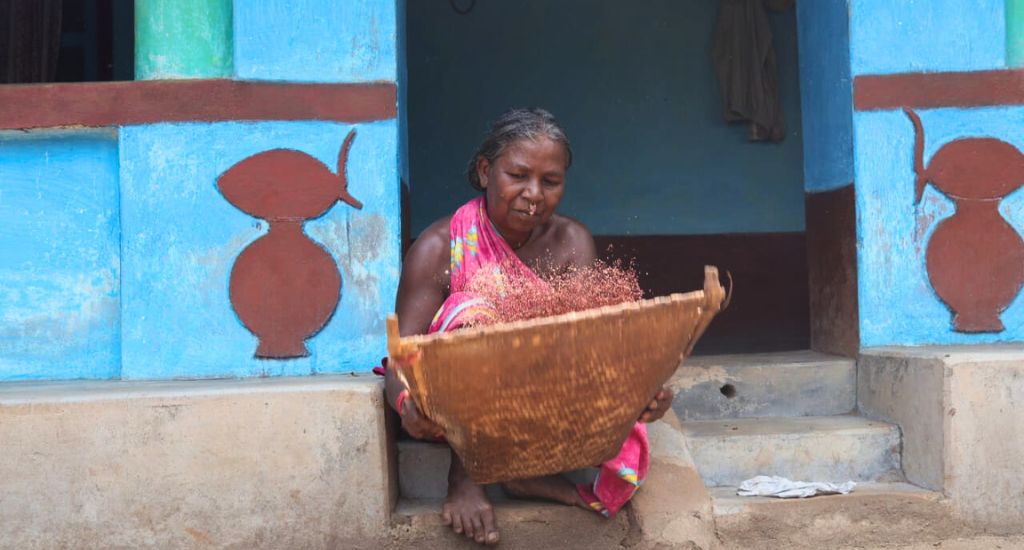
These unschooled Odisha women are running a farm school
Women farmers of Nuaguda village not only work to preserve traditional rice and millet varieties but also run a school to teach others how to follow sustainable agriculture practices.

Women farmers of Nuaguda village not only work to preserve traditional rice and millet varieties but also run a school to teach others how to follow sustainable agriculture practices.
The women of Nuaguda village don’t have any educational degree. They don’t hold any certificates. But with their unmatched traditional knowledge handed down through generations, they can hold their own in the company of scientists.
Nuaguda village in Kundura block of Koraput district in Odisha is home to about 150 families. Most of them are farmers, and you could even say that a majority of the women are traditional agricultural scientists. They not only practise organic farming and conserve traditional rice and millet varieties, but also run a farm school for the benefit of others.
Ragi and paddy are the main crops here. But the most important thing is that, in the era of hybrids and chemical farming, the women are interested in conserving the traditional rice and millet varieties. They have saved more than 70 types of native rice and 40 types of native millets. Some of the varieties saved in the village’s seed bank are dangarbasumti, tikkichudi, kalajeera, machakanta and haldichudi rice.
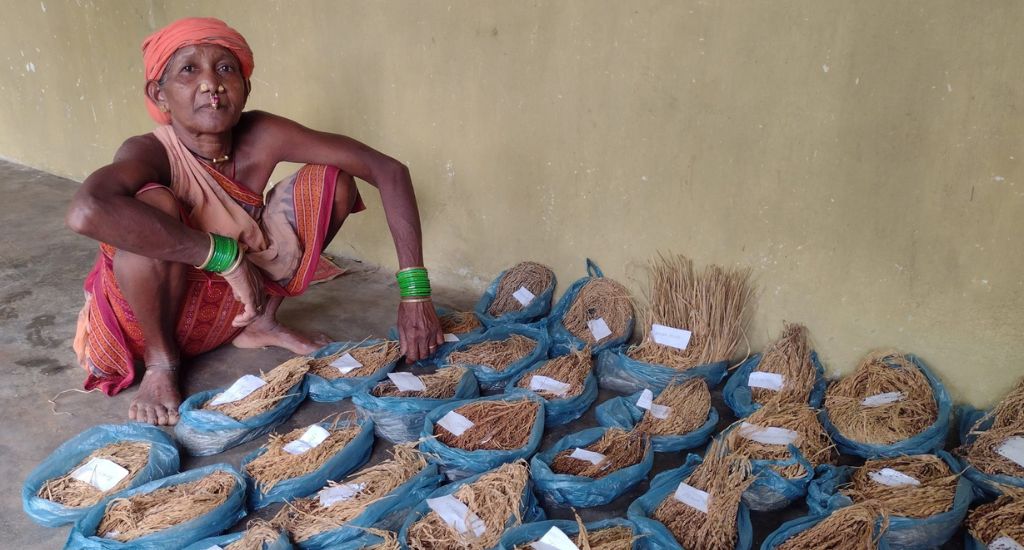
Since nearly 57 percent of the total cropped area in the region now suffers from water scarcity, the farmers in Koraput cultivate drought-tolerant traditional varieties such as kalajeera, asamchudi, ojas and tulasi rice. They know what varieties to grow and how.
“Drought tolerance is crucial for maintaining a stable yield, especially in a rainfed ecosystem,” Prashanta Kumar Parida, development co-ordinator at M S Swaminathan Research Foundation (MSSRF), said.
Also Read | Why this woman in Odisha is called a traditional seed guardian
Raimati Gihuria, a 35-year-old woman farmer of Nuaguda, spent her childhood learning new methods of rice cultivation from her grandmother, Padmashri Kamala Pujari, in her parental village. On coming to Nuaguda after marriage she put the same grafting technique to practice to cultivate the traditional rice and millet varieties available at home.
In her 8-acre farm, she now grows dangarbasumati, machhakanta, kalajeera and other indigenous rice varieties. According to Gihuria, they harvest 12-14 quintals of grain from one acre of land. They sell it for Rs 30-40 per kg.
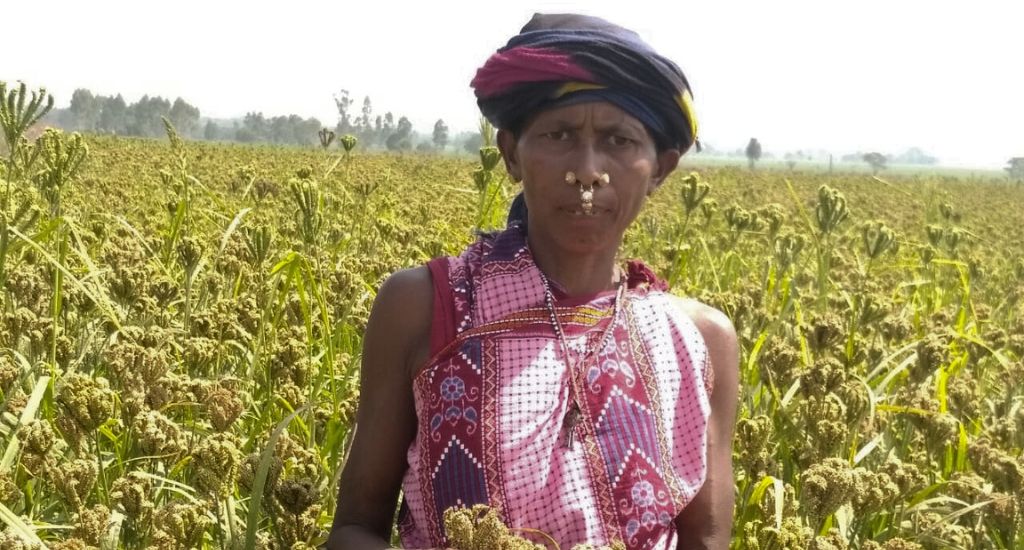
According to Kartik Lenka, a senior scientist at MSSRF, various rice and millet landraces are being cultivated for a long time, based on traditional agronomy as well as knowledge gained from ancestors.
The women farmers of Nuaguda are no longer interested in using hybrid seeds, chemical fertilisers and pesticides. They use only organic manure.
For instance, Kusum Jani applies vermicompost, cow dung and other organic manure to maintain soil fertility. She prepares vermicompost with dry leaves, biomass, crop residues, grass and cow dung, while organic manure jeevamrut is made by mixing cow dung, gram flour, cow urine, soil and jaggery.
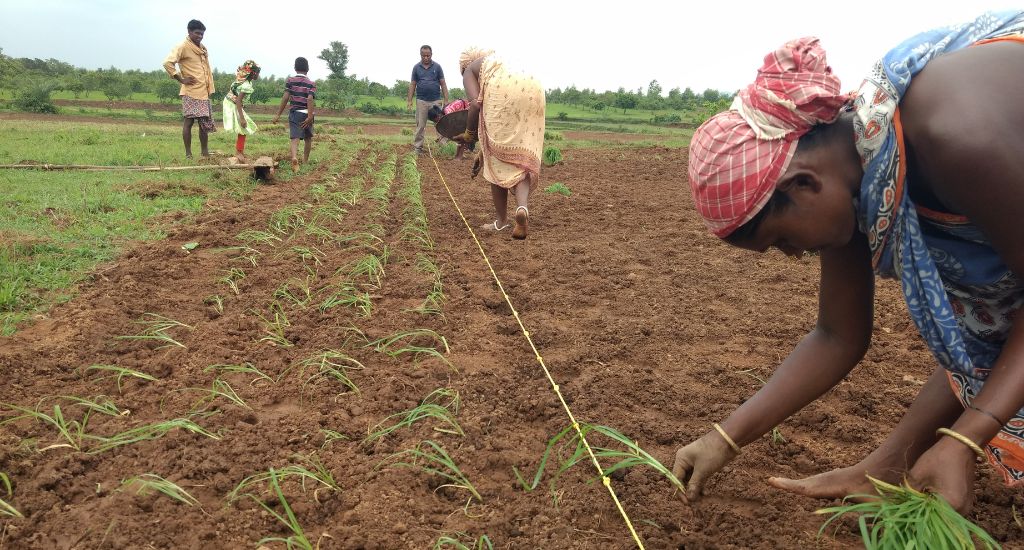
Instead of using insecticides, she uses handikhat – made with cow dung, cow urine, and neem and ksheer (curry) leaves. After a fermentation process of 13 days, the liquid is applied as an insecticide. This, the farmers say, leads to the soil remaining fertile and the harvest turning out healthy.
Also Read | Tribal woman ushers in organic farming in India’s last village
Even if there is no official statutory provision to do so, the women farmers of the village are keen to share their traditional knowledge and skills. For a long time, they have been gathering informally at an empty spot to discuss their problems related to farming.
To take this further, a village resident, Trilochan Gihuria, donated a plot measuring 0.1 acres to set up the ‘farm school’. In 2013 with support from MSSRF and monetary help from a bank, a simple structure was raised for the purpose.
The school follows a farmer-to-farmer approach, where they learn traditional farming, seeding, planting, seed storage and also the use of modern farming methods and equipment. More than 900 farmers from Nuaguda and surrounding areas have benefitted from it so far.
Trilochan Gihuria’s wife, Tulssa Gihuria, is happy that he gave land for the farm school.
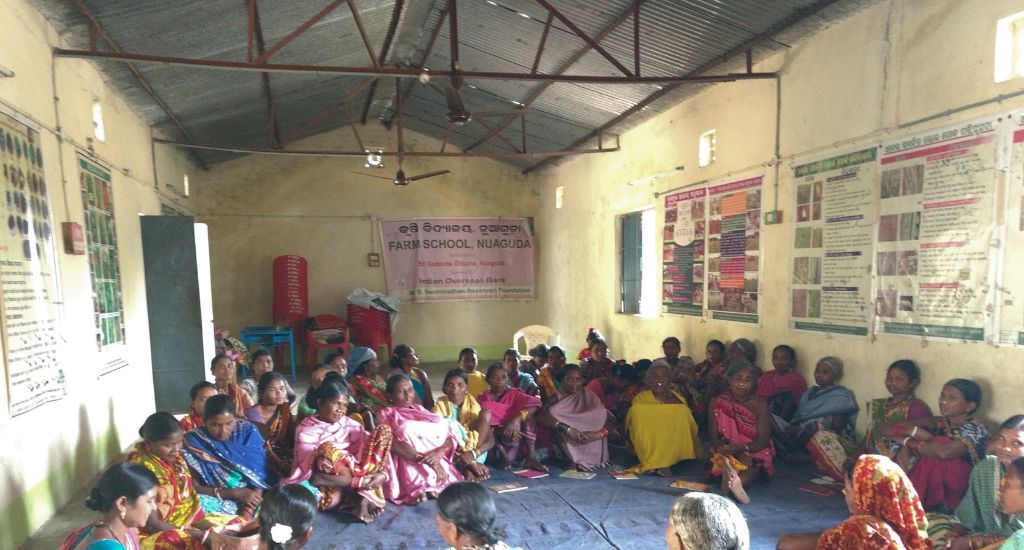
“We learn how to prepare organic manure, nurseries and also how to use tools,” she said.
The women farmers gather once a week to discuss problems related to farming, and suggest or arrive at solutions.
“If we are not able to find a solution, we take the help of government officials or research institutions,” said 45-year-old Chandrama Masiha, mentioning MSSRF and Indian Council of Agricultural Research (ICAR).
“We learn how to sell our produce and make profit,” added Masiha. “At the farm school, we don’t see if a farmer is young or old. Everyone shares whatever knowledge she possesses.”
Also Read | ‘Soilless’ farming bears fruit for Odisha women farmers
The lead image at the top shows a woman farmer of Nuaguda winnowing millets. (Photo by Prativa Ghosh)
Prativa Ghosh is a Bhubaneswar-based independent journalist.